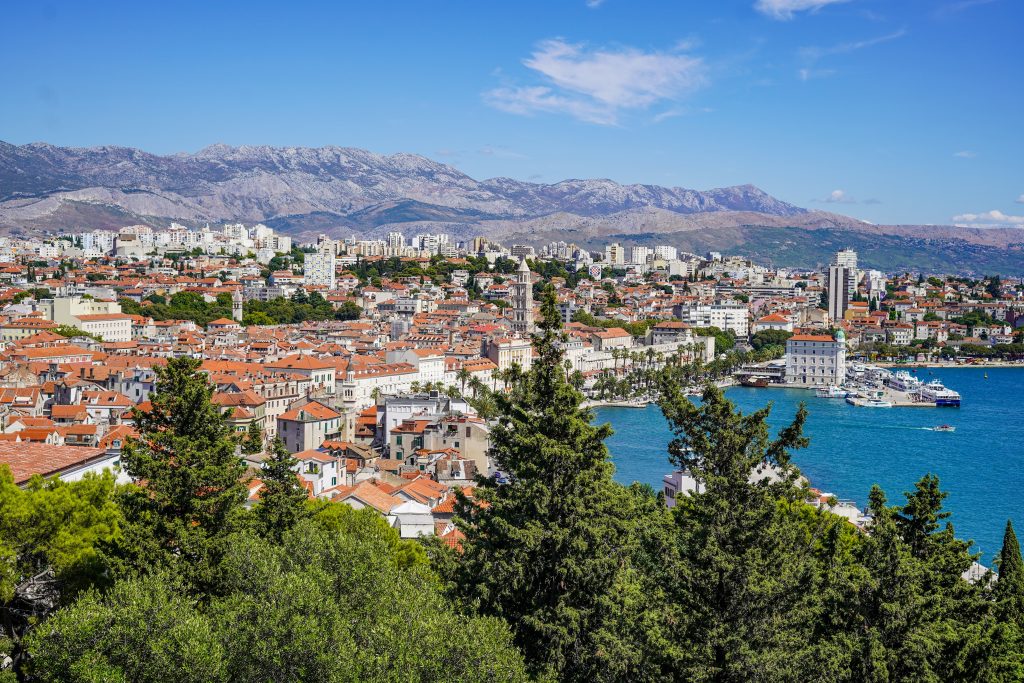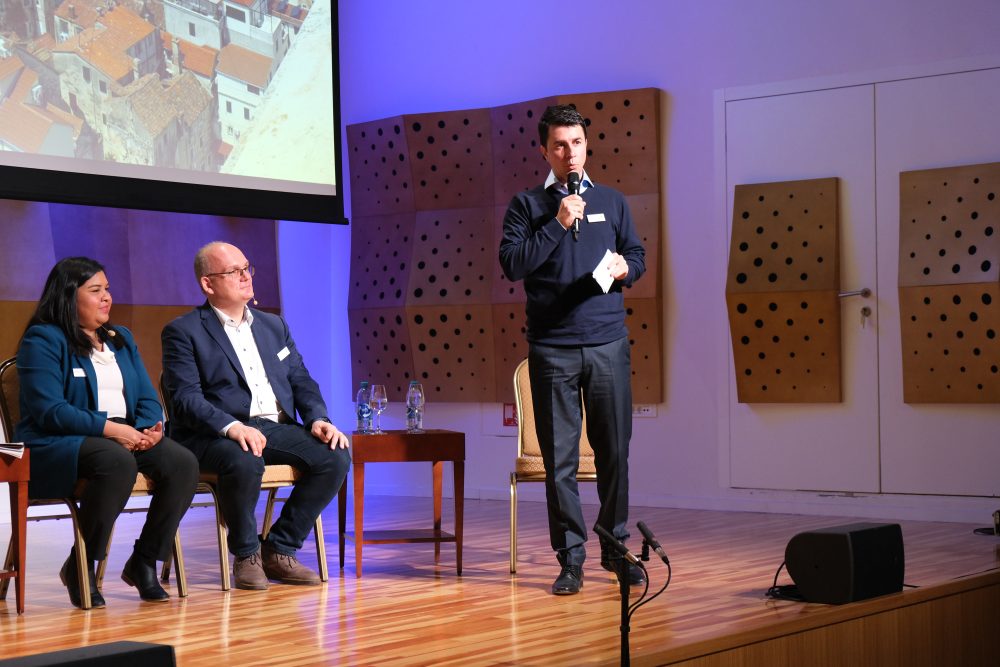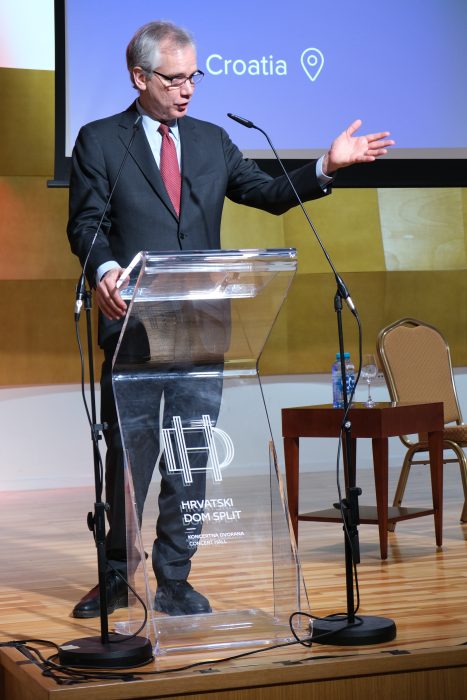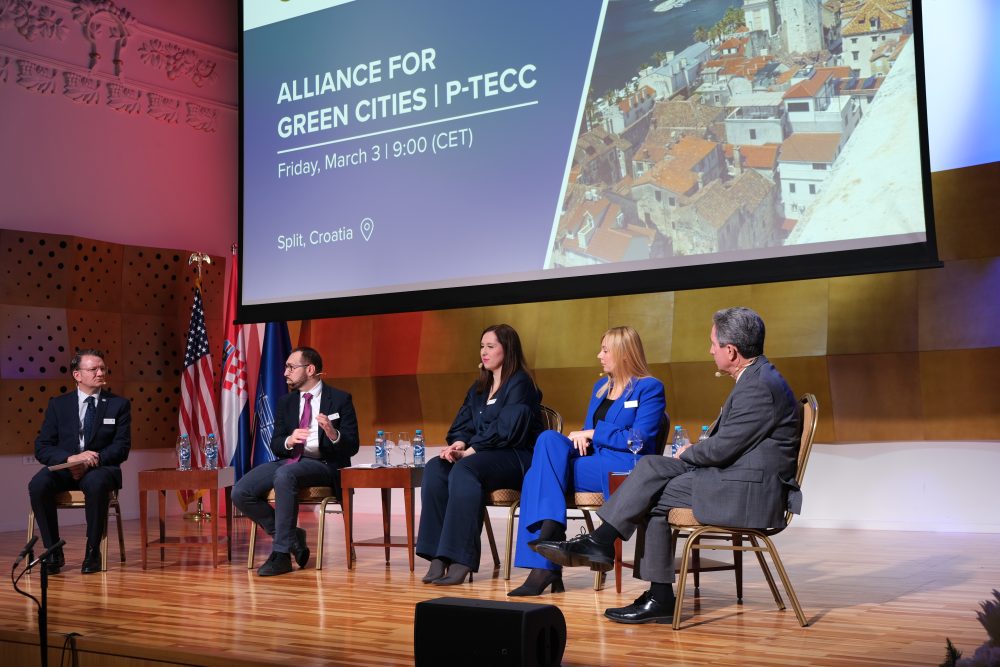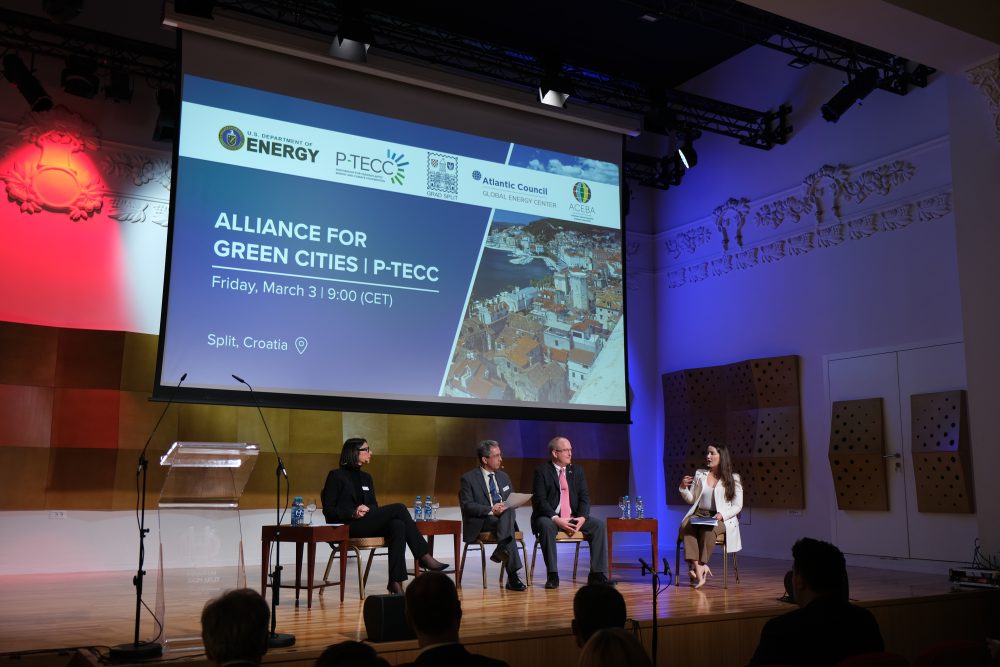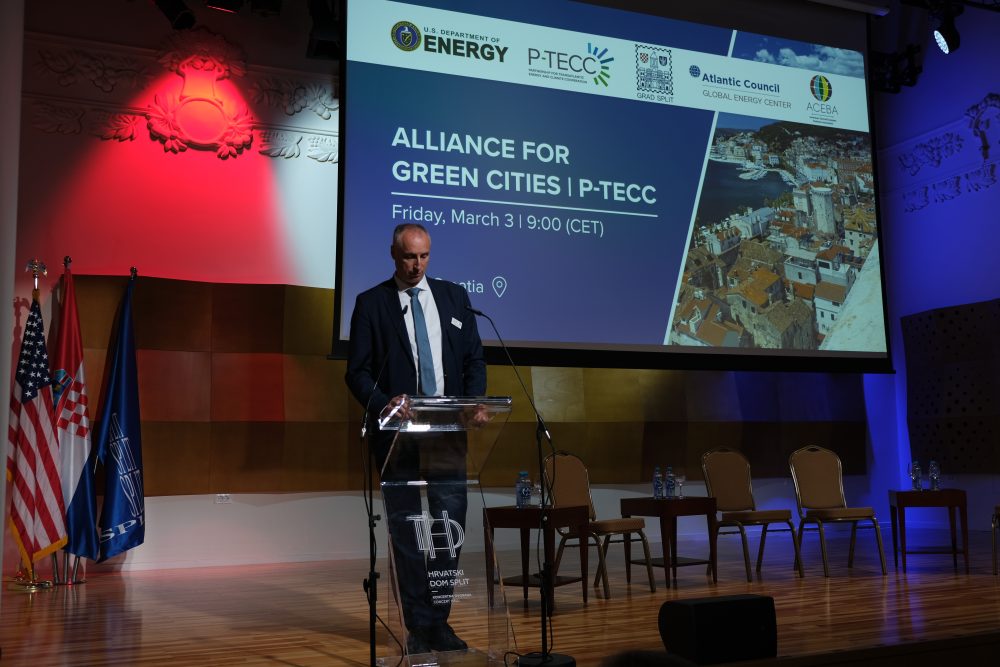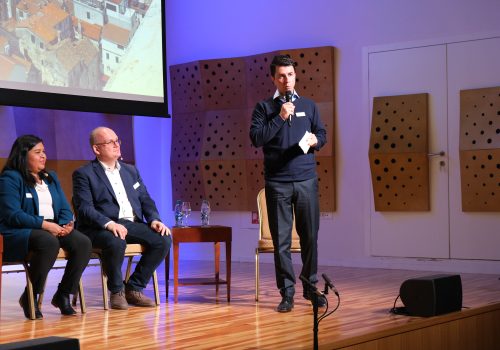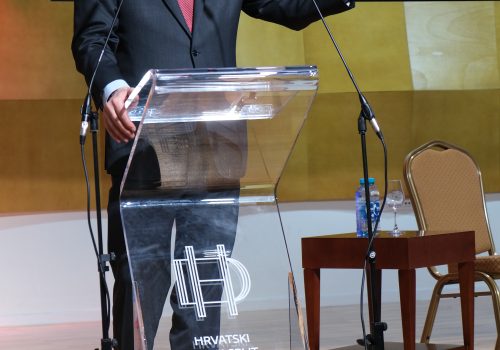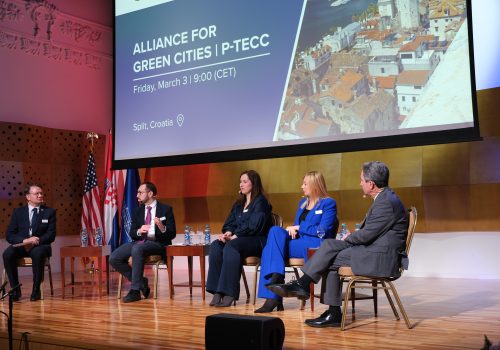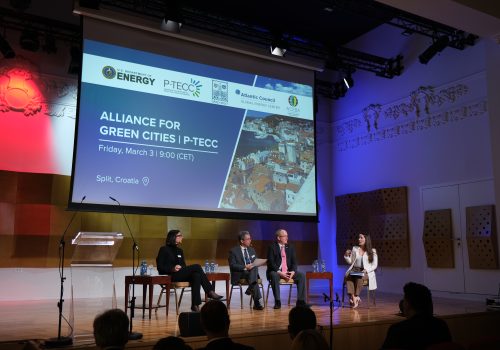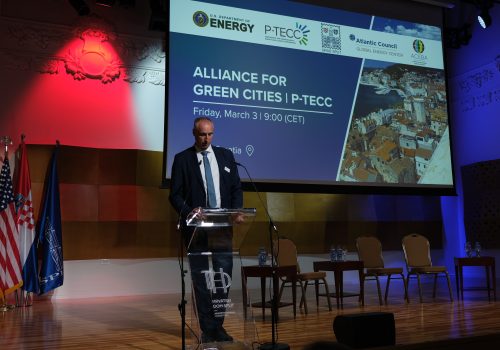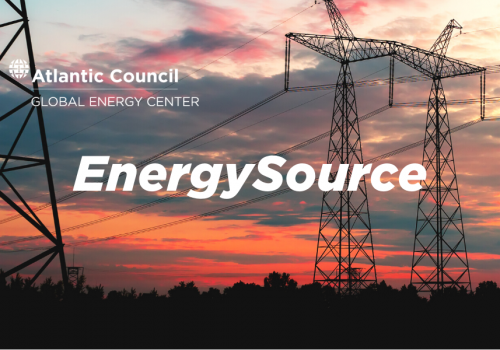Last week, the Alliance for Green Cities, a new initiative under the Partnership for Transatlantic Energy and Climate Cooperation (P-TECC), was launched by the United States Department of Energy (DOE) during an event hosted by the City of Split, the American-Central European Business Association, and the Atlantic Council. The Alliance was inaugurated with a conference in Split, Croatia, convening leaders to explore how to enhance climate action at the municipal level. This initiative highlights the role cities play in promoting a clean energy transition by upgrading inefficient energy management systems, decarbonizing transportation, and building resilience against the impacts of climate change.
The conference was joined by mayors from Croatia, representatives from US cities and DOE’s National Laboratories, and leaders from the non-profit and private sectors engaged in city-level decarbonization efforts. Kicking off with keynote remarks from Ivica Puljak, Mayor of Split, and Andrew Light, Assistant Secretary of Energy for International Affairs at DOE, the two leaders emphasized their commitment to empowering cities to play a key role in enabling policies that leverage technological innovation and unlocking funding to realize the energy transition. By recognizing cities as laboratories of change, the initiative aims to disseminate best practices in decarbonization, with an eye towards scaling policies to the national and international level.
As cities assess their emissions and press ahead with decarbonization, many are finding that buildings and transportations are their two most emissions-intensive sectors. Decarbonizing commercial and residential buildings through data-driven energy management retrofits of inefficient stock is one of the most cost-effective ways to lower carbon emissions in cities. Speakers highlighted the ways cities can work to improve building performance to reduce greenhouse gas emissions.
Russia’s war in Ukraine has accelerated the transition by increasing the price of fossil-based energy and demonstrating the interconnection between energy security and decarbonization. The war’s impact has pushed cities in Europe to make buildings more energy-efficient with support from municipal co-financing. Through this initiative, DOE’s National Laboratories will work with city leaders to deploy energy-efficient technologies.
Electrifying transportation will be key to a clean energy future. Regional power grids must be modernized to accommodate the increased demand created by a growing electric vehicle fleet. Panelists expressed desire to improve low-carbon transportation between cities, highlighting the need for national governments to support regional-scale mobility. Cities must take a much more holistic approach when planning for a decarbonized transportation sector by improving walkability and bikeability, spreading amenities beyond downtowns, and improving access to public transportation. However, providing financing at scale to address these changes is daunting. In Croatia, for example, the Environmental Protection and Energy Efficiency Fund provides investments for the public and private sectors, as well as directly to citizens, to retrofit buildings, install renewable energy sources, and decarbonize transportation.
The conference concluded by discussing opportunities for cities to become more resilient to climate impacts and to engage with citizens to respond to extreme heat, floods, and droughts. The conversation detailed the work between DOE’s National Labs and cities to develop a shared vision on maximizing economic growth and equity as it relates to a clean energy transition. A resilient city builds policies with co-benefits to address disparities in health, education, and resource access, and to engage with the communities most vulnerable to the impacts of climate change.
The conference provided a starting point for transatlantic cooperation on city-level decarbonization, but central to lowering emissions is improving education and communication with local community members to empower them to be agents of change. The Alliance for Green Cities promises to be an invaluable incubator for ideas to advance global decarbonization efforts, starting at the city level.
Photos
Learn more about the Global Energy Center

The Global Energy Center develops and promotes pragmatic and nonpartisan policy solutions designed to advance global energy security, enhance economic opportunity, and accelerate pathways to net-zero emissions.
Image: Split, Croatia. (Tom Wheatley, Unsplash, Unsplash License) https://unsplash.com/license
